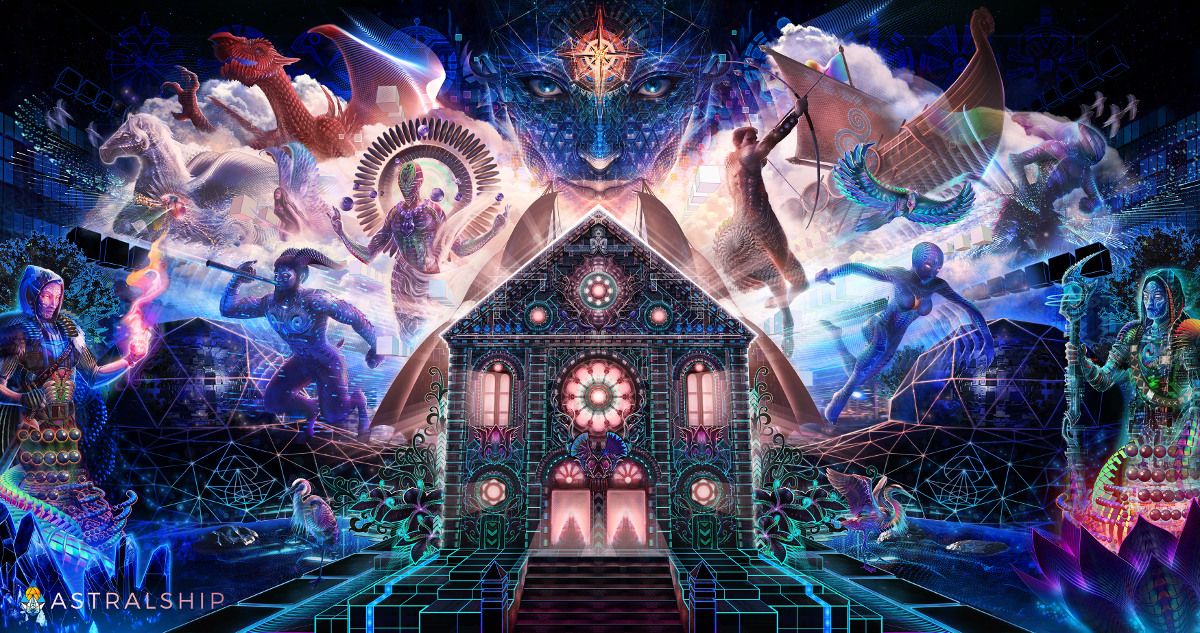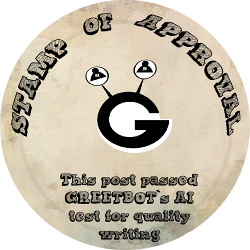Is Language Learning a killer app for VR?
Astralship is a project to create a fleet of revolutionary innovation facilities around the globe. Beginning with a pirate ship, inside a church, in the misty mountains of Snowdonia, Wales. Recently the Welsh Government has funded a voyage to develop a language learning environment in VR and Astralship is developing a game based on the ancient folktales of Britain (from the days before the English arrived). If this is the kind of mind-bending innovation that floats your boat, head over to astralship.org and see how you can get involved.

Immersion
Immersion has long been the killer approach to learning languages. Here, immersion means diving in at the deep end and forcing your mind to learn to swim in a new way. Dropping into an environment where you have no knowledge of the local language is a very steep learning curve, but not an impossible one. A lot can be learned quickly starting just by pointing and miming.
Immersion is also a key concept in VR. It provides a way to create experiences that approach the language learning sense of 'Immersion', but without leaving the convenience of the living room, opening new ways of accelerating language acquisition.
--Learning Welsh in an immersive world of virtual folklore.
The main reason for abandoning one’s native language when learning a new one has to do with overcoming the habit pattern of the mind for taking the easy option. Learning Swedish in Sweden can prove harder than learning Chinese in a rural corner of China, simply because there are many English speakers around. When I was in Japan, I met quite a lot of ‘expats’ (we don’t call them immigrants in English for some reason...). I found that after a few years there was very little correlation between how long someone had been in the country and how much Japanese they spoke. Some just learned the absolute essentials and generally lived in an expat bubble. For them, English became a crutch that stopped them learning Japanese. Others, however, dived in at the linguistic deep end and learnt to swim. They did everything they could not to use their native language and become masters of Japanese.
Consistently research shows that acquiring a second language L2 is much more successful when the first language L1 is not activated. Actively using L1 may appear to help early on--and this is how languages are traditionally taught-- but it becomes limiting later on and stops the brain deeply acquiring a new language. There's a key development stage where the learner has built a framework and can say basically anything they want to, although they might use a lot of extra words. This is the human language analog of ‘Turing completeness’. After this stage, with immersion, fluency begins to kick in quickly.
Immersion is when the VR user is able to trick their brains into thinking they are somewhere entirely different to where they actually are. Done well, Immersion let’s us see and hear, move around and interact in whole new worlds of experience. We can explore complex scenes, pick up objects and interact with other beings in a world constructed inside computer, just as we can feel present we can feel we're really using a language.
VR opens up a new dimension. Until now classroom role plays were the next best thing to interacting with real native speakers. With VR there is another place, a simulated world where your brain feels almost like you’re there. Instead of sterile classroom role plays, language learners can immerse themselves in virtual worlds and buy items in virtual shops, receive directions as they walk down virtual streets, and meet real language partners who are fluent in their target language.
VR can give us experiences that allow deep and powerful learning. Maybe close to the ones we have in the real world, but way beyond reading scripts in the classroom. VR also has advantages over the real world. In VR we can dynamically create and alter the world and this can be a powerful way to provide custom experiences the user needs to enhance learning. In the real world, we can mime, point and mimick when we don’t have a common language. We can show an appropriate picture card, but we can’t spontaneous manifest a visual representation of what we want to say that floats in front of us.
Creating a comprehensive, intelligent and adaptive learning environment in VR for immersive language learning is no small challenge. A large amount of content needs to be created, and to simulate natural communication with non-human avatars, the computer needs to be able to understand the user's speech. The technology may be in place for this but there is a huge amount of work to do to bring it all together.
The initial Astralship voyage has a limited budget and only 3 months to complete. It won't tackle the speech recognition problem. Instead, the team is working on a creating a compelling game to demonstrate the power of immersive language learning in VR. The game will teach Welsh-- the indigenous language of Britain that inspired Tolkien. So far it's looking good and the voyage is an exemplar of Astralship as a creative innovation accelerator. Once there is a working pilot for teaching Welsh, the team will attempt to raise investment to adapt it to teach any language.
Wales has an ancient celtic culture and language, one that's still spoken by over half a million people. Its folklore is amongst the oldest in Europe and contains the original tales of dragons, wizards, and Arthur’s knights. The Astralship game follows the tale of ‘Mabon ap Modron’, the eternal youth and member of Arthur’s band. It has a low poly art style, allowing the creation of a rich world on a limited budget. The team is working with a local immersive language school and hopes to gain enough from the experience to enable further voyages into this space. Astralship is openly looking for collaborators, artists, game designers, animators and would-be innovators in the language learning, neuroscience frontier.
The team intends to explore a crypto token system to facilitate an economy of teaching and learning.
Astralship’s mission is to change the world for the better. On it's own, this VR voyage won’t save the planet on it’s own, but it is a great starting place for a project like Astralship which doesn’t have corporate funding behind it.
The dragon on the Welsh flag is a symbol of the nature. England’s is that of St. George the dragon slayer. English culture went on to establish a global order that produced many wonders but has also fallen out of balance with nature. Despite millennia in the shadow of England, Welsh culture is still very much alive. Perhaps the Dragon was not slain but only hiding? Who know what unleashing the voice of this ancient indigenous culture in VR might have?
[thanks for reading, please upvote to help Astralship get established on Steemit]
Hi there, I saw your link in one of my posts and had to check it out. I have ran projects using augmented reality and VR as well. This has a lot of potential. Two things I feel can help make it better.
Collaboration / multiplayer. Language is often fostered via communication in a fun manner. This week definitely help.
Assessment / exam Integration: one thing I find many parents have asked about VR games is,how does it help my child in the exams. Thus, an emphasis on reading /writing /grammar would help you reach a larger audience.
Hope that helps! Let me know how it goes. I have an interest in gamification in education.
Hey, great to meet you. We are not currently able to do multiplayer, but I totally agree with you. Another interesting avenue that relates is a tokenizing teaching. If this also interests you, maybe we could collabate on a white paper? Currently, we are a small team: one developer in UK, one in Japan. We don't have time now to design or implement the multiplayer. But I am 100% for taking an innovative tokenised approach to making it happen. Carpe diem!
Sure, let me know how I can help. Multiplayer can still be done on real life instead of in the game. You could have an accompanied teacher's module that comes with the game.
Sorry for the delay. I've gone down with flu but starting to recover now. whats the best way to message you?
I'm on discord, are you there too?
Hi, no I'm not on discord. I just created the server astralship which I'm currently on. Try to contact me there, or otherwise email me liam at astraldynamics.co.uk
looking forward to making contact.
Hey, just shot you an email using the email address you have on your site
Hey Liam,
Eloh Projects is on Steemit. Can't wait to see you in a few weeks:)
Go Liam!
Hi. I am @greetbot - a bot that uses AI to look for newbies who write good content!

Your post was approved by me. As reward it will be resteemed by a resteeming service.
Resteemed by @resteembot! Good Luck!
The resteem was paid by @greetbot
Curious?
The @resteembot's introduction post
Get more from @resteembot with the #resteembotsentme initiative
Check out the great posts I already resteemed.
Resteemed by @resteembot! Good Luck!
The resteem was paid by @greetbot
Curious?
The @resteembot's introduction post
Get more from @resteembot with the #resteembotsentme initiative
Check out the great posts I already resteemed.
You were lucky! Your post was selected for an upvote!

Read about that initiative